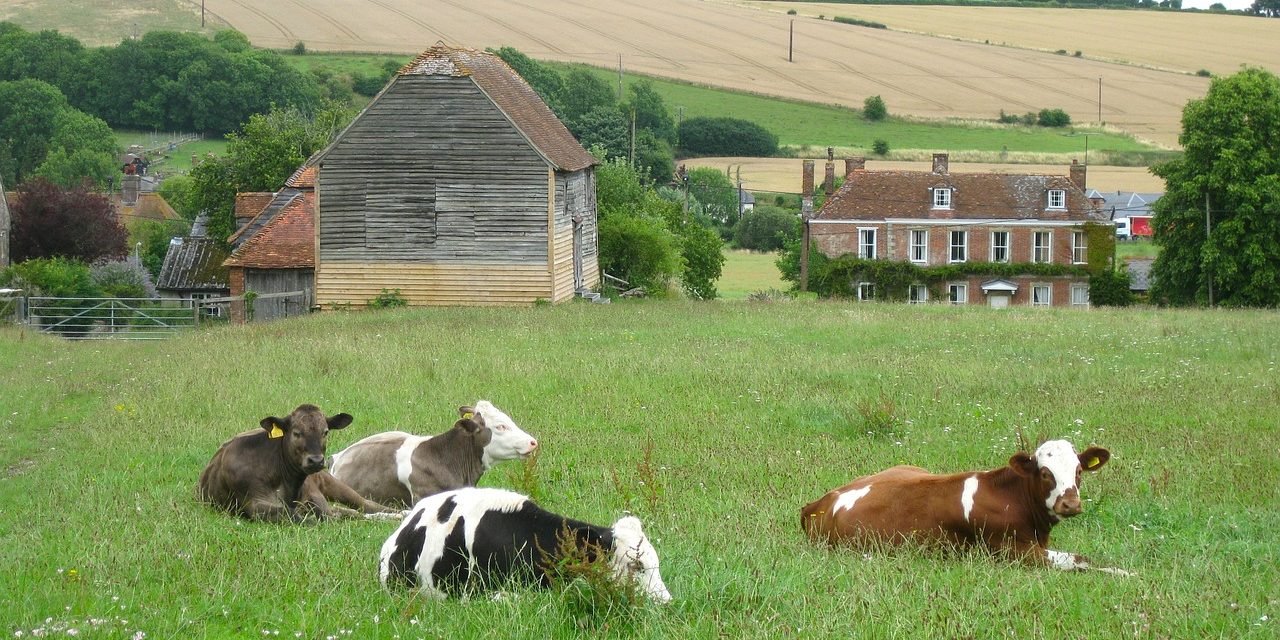The relationship between rural areas and Brexit has been neglected in a preoccupation with the urban geographies of the ‘left behind’ and the political arguments about culture wars. How might the patterns of the 2016 referendum vote be interrogated to provide insights about social and economic changes in rural places and wider shifts in rural populations, ask Sarah Neal, Anna Gawlewicz, Jesse Heley, and Rhys Dafydd Jones?
After the expansion of the European Union in 2004 and 2007 migration from the new member states to rural areas has meant that many UK rural communities have newly experienced migration settlement and increased ethnic diversity. There has been some high-profile media attention on the impact of Brexit for farmers, the implications of a decline in migrant labour for food production industries, and concerns regarding subsidies for land and environmental management. However, far less attention has been paid to what Brexit might mean socially – for rural well-being, rural communities and rural inclusion. The social impact of Brexit in these places needs to be considered alongside the economic concerns.
Addressing these questions involves revisiting and ‘ruralizing’ the 23 June 2016 Referendum outcomes. There was a Leave majority in most rural areas of England where the Leave vote was 55 per cent, higher than the Leave vote in England (53 per cent) and the UK (52 per cent). However, this outcome was much less consistent in rural Wales, Scotland, and Northern Ireland, and there were Remain exceptions in all rural areas (including England). Yet the significance and complexities of rural patterns in Remain/Leave voting are still to be fully explored. Do rural Remain/Leave politics reflect rural spaces as monocultural, idyllised and exclusionary constructions through which national identity can be re-secured? Or is it more appropriate to understand them as turbulent geographies experiencing population churn, restructuring processes, migrant settlement, racism and ethnic diversity?
It is necessary to trouble any easy assumptions of a straightforward urban-rural, Leave-Remain divide. While Boston in rural Lincolnshire (an area of significant EU migration) is often cited as having the highest Leave vote (76 per cent), other rural areas like Ceredigion in mid-Wales (which also had significant levels of EU migration) had a robust Remain vote (55 per cent). This is just one example of the ways in which the devolved UK countryside unsettles interpretations of Leave-Remain divisions.

The ‘take our country back’ nationalism that framed much of the Brexit debate in media coverage was arguably a particularly English version of nationalist politics: research has shown that in Wales and Scotland a nationalist vote was more likely to result in a Remain vote. The differences in rural contexts are reflected in the much more fragmented Brexit narratives in Wales where the more rural counties like Ceredigion but also Monmouthshire and Gwynedd voted Remain alongside the more metropolitan Cardiff, while Powys and Pembrokeshire voted Leave in keeping with the largely urban Rhondda Cynon Taf, Swansea and Wrexham. This points not to a straightforward rural-urban divide, but more to intra-rural (and intra-urban) differences. In Scotland, both rural and urban areas voted overall to remain, yet there were rural pockets of strong Leave-voting in such places as Whalsay and South Unst in the Shetlands or Banff and Buchan in northern Aberdeenshire. It is important to examine these complex rural geographies of Leave/Remain and their implications for the ways in which social relations in diverse rural places are imagined, enacted and managed in the post Brexit contexts.
We undertook a small number of interviews with representatives from rural and/or migration voluntary and public sector organisations in three distinct remote rural geographies in England, Scotland and Wales. All of them have agricultural and tourism-driven economies and have experienced significant EU and other migration settlement. The key focus of these interviews was to listen to policy perspectives on the ways in which Brexit might socially impact rural areas and rural communities.
A striking feature of our interview conversations was the extent to which changing migration patterns have reshaped rural communities. Any associations of rural places as unchanging sites of cultural sameness have been replaced by a recognition of rural transnationalism and rural ethnic and social diversity. Certainly, EU migration was dominant in this shift but it is also important to note that refugee settlement (e.g. the Syrian Vulnerable Persons Resettlement scheme) as well as hospital, university and military related migration have generated a changing rural population so that, as one interviewee stated: “20 years ago [rural areas] didn’t really have diversity and were quite monocultural but they can’t say that anymore”.
Alongside this diversity was an emphasis on the extent and the multidimensionality (agribusiness, food production, tourism, health and social care) of rural dependency on migrant populations and migrant settlement. While some of this dependency was economically framed it often overlapped with an awareness of the social costs – worries about “farms going out of business when farms are at the centre of rural communities”, worries about what impact of post-Brexit managed migration, i.e. “short term worker” schemes, could have on rural cohesion, recognition that migrants who had settled in rural areas were often socially participatory and “very active in their communities” and “would be much missed” if the constraints of Brexit meant they moved. For these interviewees, there was a sense of rural precarity, that given these multidimensional migrant dependencies Brexit would more acutely affect rural areas demographically and economically but also in terms of wider rural social well-being and agency.
Despite raising concerns about racism in the countryside and the importance of addressing racism as a rural problem, one of the fuzzier aspects in our interview conversations related to reflections on whether Brexit support was shaped by anti-migrant sensibilities. As one interviewee told us, “I mean you get the odd [one] but I mean most rational people value migrants” and another suggested, “those more rural communities that don’t have a history of diversity are the ones that have struggled a bit more to deal with [it, but] it’s about the pace of change and the unexpected nature of it rather than having any migration per see.” There was a reticence about interpreting Brexit as anti-migrant or racialized and the Boston Leave vote was seen more as an instance of rural exceptionalism.
We were working from a small set of participant voices and these were also particular ‘expert’ policy voices so there are clear caveats to be kept in mind here. But we suggest that the findings begin to add to an emerging rural-Brexit analysis and perhaps most importantly question dominant rural-Brexit assumptions, highlighting the need to develop a more situated and granular focus on post-Brexit and rural geographies.
Viewing the 2016 Referendum and its outcomes through a rural lens exposes rural difference, a nationally devolved, intra-rural, rather than a rural Leave disposition, multi-dimensional migrant dependencies and related senses of vulnerability that are not only economic but social. Trying to disconnect these and focus only on economic needs denies migrants as being of/in rural life. While our interviewees did not see Brexit as anti-migrant what our conversations showed is in the everyday, community life of rural places, the politics of Brexit have, paradoxically, exposed the uncertainties and fragmentations of ‘the rural’ for sustaining and securing nationalism.
This post represents the views of the author(s) and not those of the Brexit blog, nor of the LSE. It is based on Neal S, Gawlewicz A, Heley J and Dafydd Jones R (2021) Rural Brexit? The ambivalent politics of rural community, migration and dependency. Journal of Rural Studies, 82: 176-183. DOI: 10.1016/j.jrurstud.2021.01.017






